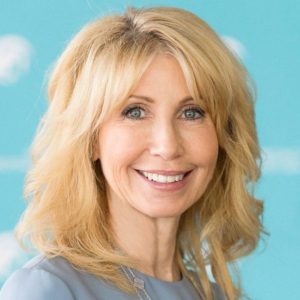Lynn Factor, C.M., O.Ont., (MSW ’88) is an exceptional advocate for disadvantaged youth. She has devoted more than 35 years to improving services and programs for society’s most vulnerable children as a front line social worker, philanthropist and leader. Presently Lynn serves as a child witness advocate with the Boost Child & Youth Advocacy Centre, preparing child victims and witnesses of crime to testify in criminal court. She is the former chair of the board of the Children’s Aid Foundation of Canada and a board member for Covenant House Toronto. Lynn was named to the Order of Ontario in 2011 and a member of the Order of Canada in 2017.

Q: Why did you choose York for your MSW?
A: After I completed my undergrad at Ryerson I was fortunate to be hired by Durham Children’s Aid Society, which is where I decided to pursue social work as a career. When I elected to do a Master’s degree, I chose York because it offered a part-time program which allowed me to work while I studied. It was a fairly new program at York and I was privileged to be one of the 12 students selected. I was able to compress my work week into four days and also take classes during the summer so I could complete the program in just two years. I believe the average length of completion was around three to five years, but I wanted to finish it particularly when I was writing and defending my thesis while pregnant with my first child; it was a real race to the finish line and it was a relief that the baby stayed put until I finished.
My experience at York was excellent. My supervisor was Francis (Frank) Turner; he was a remarkable individual, very genuine and caring. I really liked my professors and was grateful for an opportunity to study areas that were of interest to me. At the time I worked in child protection specializing in child sexual abuse. I wrote my thesis about the effects of group treatment with female adolescent victims of sexual abuse. My literature review was material that was highly relevant to my work then and is still relevant today. I’d recommend the program to anyone.
Q: You are well known as a child advocate, volunteer and philanthropist. How did you get to this place in your career?
A: After graduation I stayed at Durham Children’s Aid Society until I was asked to work for the Superior Court of Justice in Toronto as a victim witness advocate in the courtroom. After that I was employed at Boost Child and Youth Advocacy (formerly the Special Committee on Child Abuse and the Toronto Child Abuse Centre) preparing children and youth who were victims and/or witnesses of a crime to testify in a criminal court. I continue this work today.
I am former chair of the Children’s Aid Foundation of Canada. Currently I chair the Scholarship Committee, which provides post-secondary funding to current and former child welfare wards. My husband, Sheldon Inwentash, and I have also endowed two scholarships and support other child welfare initiatives. Additionally I am also chair of the Youth in Transition Committee, which brings together the four children’s welfare agencies in Toronto and other organizations who deal with youth leaving the child welfare system. These youth are particularly vulnerable as they age out and do not have a support system in place. In my opinion it’s important that we take this broad, multi-agency, collaborative approach to provide the best support to this population.
I am also on the board of Covenant House Toronto and chair of its Sex Trafficking Advisory Committee; this is also a broad multi-agency group that brings together various high-level professionals who deal with victims of sex trafficking such as police, healthcare workers, addiction counsellors, and other youth services to provide holistic support and homes for victims.
Q: You said child welfare is very polarizing - “you either love it or hate it.” Why is that?
A: Child welfare is incredibly stressful; you are accountable for the decisions you make and the decisions you don’t make. Sometimes people look down on child welfare workers because the outcomes of our work are not always ideal, but what may not be understood is the complexity of the work. Navigating the needs of the child and the parents, coupled with understanding and following the Child and Family Services Act, not to mention the decision the judge might make, means that the social worker has an extremely complex and stressful job. I particularly liked intake since it was different every day and I was exposed to every type of situation a child might encounter. It’s intellectually stimulating and very challenging.
Q: That does sound stressful. What keeps you motivated?
A: It’s simply to make a difference, and while that sounds cliché, it’s actually quite profound. I believe that if you’ve improved one person’s life, you’ve actually improved many generations that follow. It’s about breaking the cycle of abuse. Additionally, because I am a social worker, a volunteer and a philanthropist, I am able to see issues differently and see things others may not. I’m able to be a voice for the children who don’t have a parent advocate. Everything I do, I do because I enjoy it.
